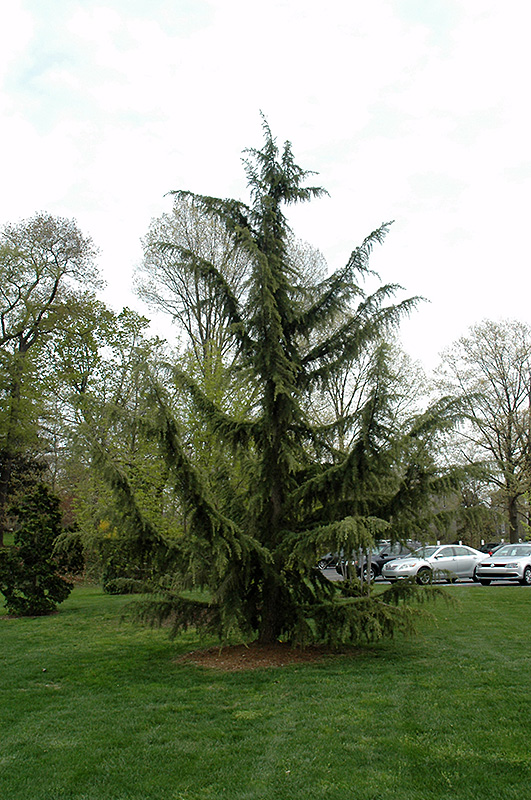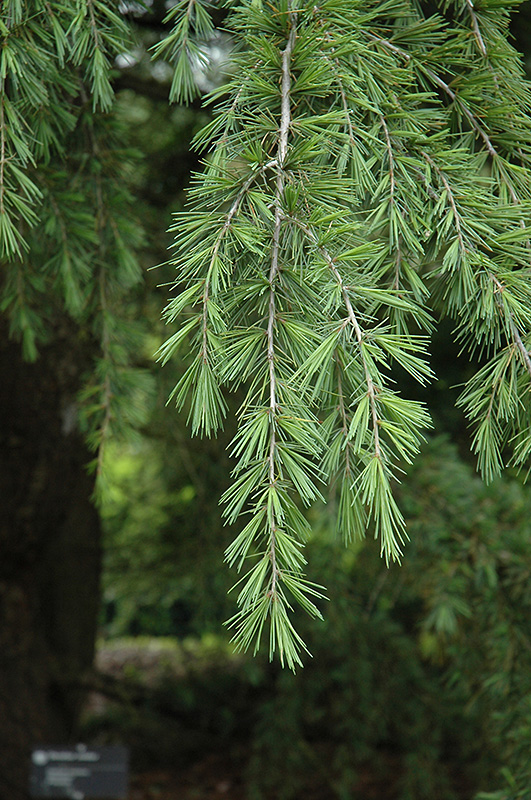Plant Finder
Shalimar Deodar Cedar
Cedrus deodara 'Shalimar'
Height: 40 feet
Spread: 30 feet
Sunlight:
![]()
Hardiness Zone: 6
Other Names: Himalayan Cedar
Description:
This smaller version of the grand species is a spreading tree with a broad habit of growth, pendulous branches and shimmering silvery-blue needles; best used for its majestic architectural qualities as a solitary landscape accent
Ornamental Features
Shalimar Deodar Cedar is primarily valued in the landscape for its characteristic tiered habit of growth. It has attractive bluish-green evergreen foliage. The needles are highly ornamental and remain bluish-green throughout the winter.
Landscape Attributes
Shalimar Deodar Cedar is an open evergreen tree with a stunning habit of growth which features almost oriental horizontally-tiered branches. Its relatively fine texture sets it apart from other landscape plants with less refined foliage.
This is a relatively low maintenance tree, and usually looks its best without pruning, although it will tolerate pruning. It has no significant negative characteristics.
Shalimar Deodar Cedar is recommended for the following landscape applications;
- Accent
- Shade
- Vertical Accent
Planting & Growing
Shalimar Deodar Cedar will grow to be about 40 feet tall at maturity, with a spread of 30 feet. It has a low canopy with a typical clearance of 3 feet from the ground, and should not be planted underneath power lines. It grows at a slow rate, and under ideal conditions can be expected to live for 80 years or more.
This tree should only be grown in full sunlight. It is very adaptable to both dry and moist growing conditions, but will not tolerate any standing water. It is not particular as to soil type or pH. It is somewhat tolerant of urban pollution, and will benefit from being planted in a relatively sheltered location. This is a selected variety of a species not originally from North America.
Disclaimer - Rutgers Landscape & Nursery Plant Finder is an online resource representing many of the varieties that we carry over the course of the season, and is intended for informational purposes only. Inventory varies seasonally, so we cannot guarantee that every plant will be in stock at all times - please contact Rutgers directly for current availability.


